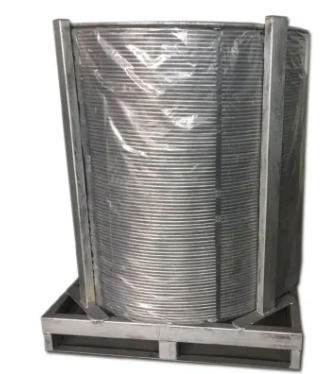
Silicon alloys play a crucial role in various industries, including steelmaking, aluminum production, and the manufacturing of electrical components. The smelting process of silicon alloys requires precise control of composition and properties. Calcium Cored Wire (CCW) has emerged as an effective tool for enhancing silicon alloy smelting. This article explores the advantages and applications of smelting silicon alloys with Calcium Cored Wire.
Calcium Cored Wire is a composite material containing a steel casing filled with a powdered blend of calcium and other elements. When introduced into the molten metal during the smelting process, Calcium Cored Wire releases calcium vapor, which interacts with the silicon present in the alloy, resulting in various beneficial effects.
Deoxidation and Desulfurization: Silicon alloy smelting with Calcium Cored Wire facilitates deoxidation and desulfurization processes. The calcium released from the wire combines with oxygen and sulfur impurities, forming calcium oxide (CaO) and calcium sulfide (CaS) compounds. These compounds rise to the surface as slag, effectively removing undesirable impurities from the molten alloy.
Improved Alloy Yield: Calcium Cored Wire enhances the yield of silicon alloys by improving the recovery of silicon. The calcium vapor reacts with silicon dioxide (SiO2) present in the molten metal, producing silicon vapor. The silicon vapor then recombines with the remaining silicon in the alloy, minimizing silicon losses and increasing the overall silicon content of the final product.
Temperature Control: Calcium Cored Wire aids in temperature control during silicon alloy smelting. The exothermic reactions between calcium and oxygen or sulfur contribute to maintaining the desired temperature range, ensuring efficient smelting and preventing overheating or underheating of the molten metal.
Alloy Modification: Silicon alloy smelting with Calcium Cored Wire enables the modification of alloy composition and properties. The controlled addition of calcium allows for the adjustment of silicon content, as well as the introduction of other alloying elements such as aluminum, manganese, or titanium. This flexibility allows manufacturers to tailor the silicon alloy to meet specific application requirements.

Steelmaking: Silicon alloys are widely used in steelmaking as deoxidizers and alloying agents. Smelting silicon alloys with Calcium Cored Wire enhances the efficiency of the steelmaking process by facilitating deoxidation and desulfurization, improving steel cleanliness, and controlling alloy composition.
Aluminum Production: Silicon alloys are essential in aluminum smelting processes as grain refiners and modifiers. Calcium Cored Wire can be utilized to achieve precise control over the silicon content and other alloying elements, improving the mechanical properties and casting characteristics of aluminum alloys.
Electrical Components: Silicon alloys find applications in the manufacturing of electrical components, such as semiconductors and solar cells. Smelting silicon alloys with Calcium Cored Wire ensures the production of high-purity silicon with controlled impurity levels, enhancing the performance and efficiency of electronic devices.
Foundry Industry: In the foundry industry, smelting silicon alloys with Calcium Cored Wire enables the production of high-quality castings. The desulfurization and deoxidation properties of the wire contribute to reduced casting defects, improved surface finish, and enhanced mechanical properties of the cast products.

Write a Message